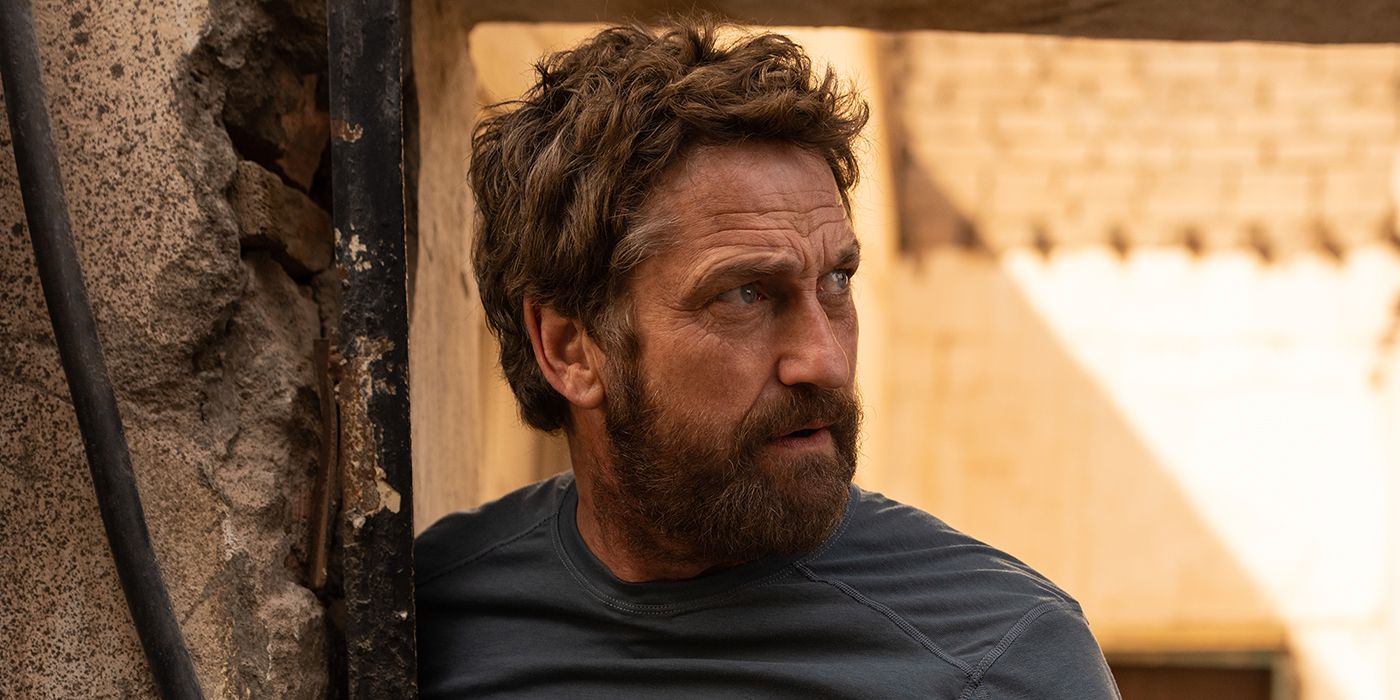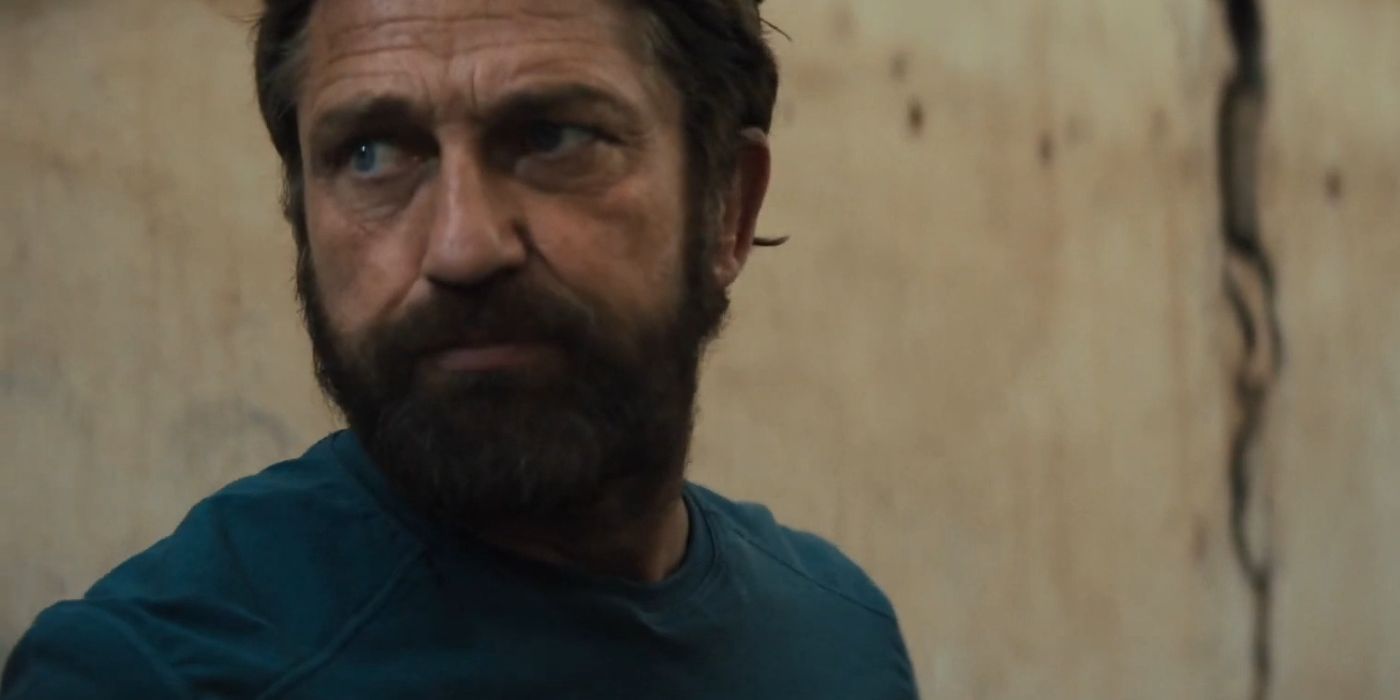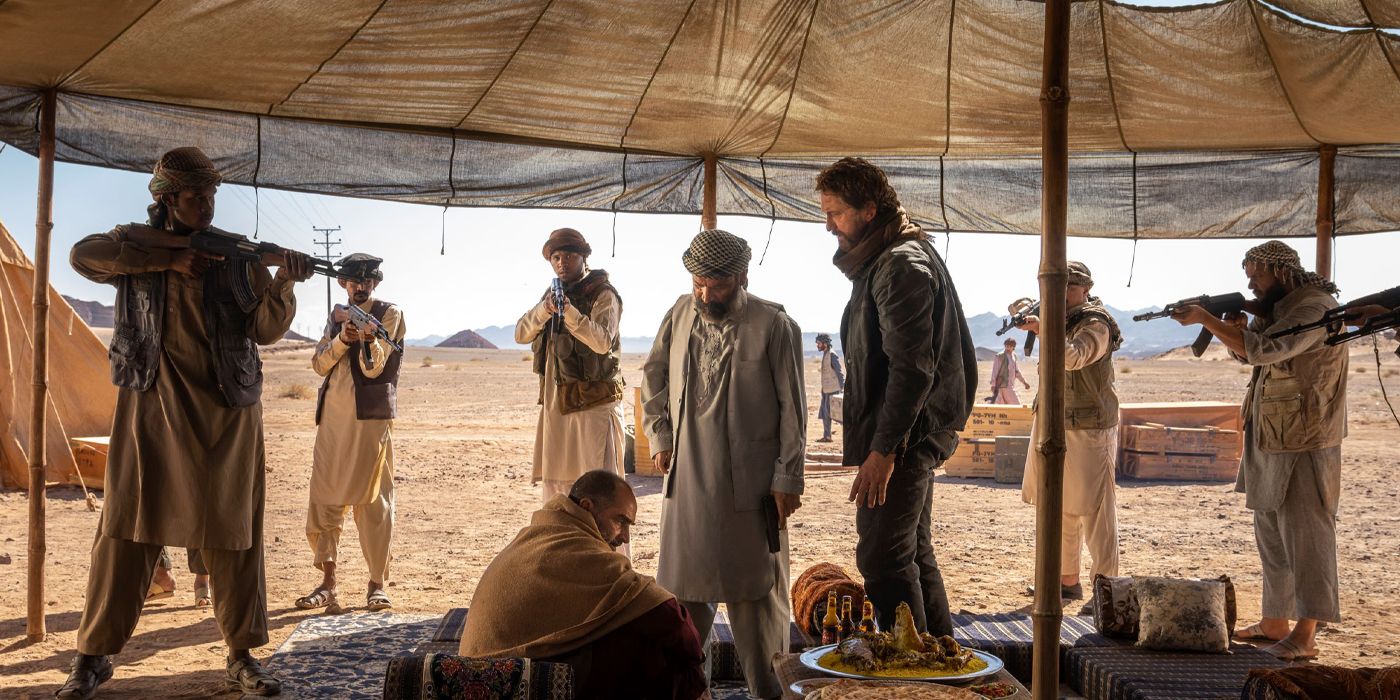With empty action and a story devoid of earned emotion, not even a committed Gerard Butler can hold this one together.

If you’re looking for an actor to play a gruff action man who can’t seem to catch a break, there are certainly worse options out there than Gerard Butler.
Over the better part of the last decade, he has become the go-to performer to play a character who will have to fight their way out of a rough spot against seemingly overwhelming obstacles.
Usually, this is to get home to his stock family who seem to exist primarily through phone calls in order to provide something resembling a character motivation. Just this year, we saw this basic structure play out in the underwhelming Plane that Butler did his best to bring something more to only for it to never really take flight.
Still, it managed to let loose in its conclusion and make up for some of what had preceded it. When looking back on it in comparison to Butler’s second film to release this year, the increasingly tedious Kandahar, that now looks like a masterpiece.
Billed as being an action thriller, the actor’s latest outing is a meandering and uncertain movie whose greatest accomplishment is how utterly unmemorable it is despite a lot being thrown out there.
This all begins with CIA operative Tom Harris (Butler) who we first meet targeting an Iranian nuclear reactor. He does so while pretending to be a telecommunications contractor who is just helping them get better WiFi.
When his cover is almost blown, he creates a dubious distraction by showing how he can stream sports on his own phone because of his work. The next day, the reactor explodes and leaves everyone scrambling to figure out who was behind it.
While Tom intends to leave to go home to his daughter’s graduation, which his wife reminds him over the phone about while asking him to sign divorce papers, this isn’t so easy.
Before he can depart, he is approached by his handler Roman Chalmers (Travis Fimmel), and told there is one other job for him to destroy more of Iran’s nuclear infrastructure.
It is supposedly only meant to take three days and requires him to go to Afghanistan where he will meet with Mohammad “Mo” Doud (Navid Negahban) who will serve as his translator for this mission.
When Tom’s work in this shadow war is exposed, the duo will have to make their way to an extraction point in Kandahar while being attacked by a variety of forces all looking to take them in. In this two-hour film, this doesn’t begin in earnest until nearly an hour again. Even when it does, everything from the banal action to the attempts at dramatic reflection falls flat.
Gerard Butler Can’t Save ‘Kandahar’ From Itself

Directed by Ric Roman Waugh, who previously worked with Butler on the surprisingly strong Greenland and the far less so Angel Has Fallen, its construction is often to its detriment.
The first proper action scene is built around a car chase that begins in a crowded market and only happens because of an odd instance where Tom accidentally runs into a vehicle in front of him.
With this already strained start, things get worse from there as the direction feels like it is just checking off boxes rather than really capturing the tension of this chase. There is never a moment where you feel any sort of concern for the characters both because of how haphazardly constructed it all is and because of how pedestrian it feels.
The film will tell us that this is just because Tom is really good at his job as spy man, with one side character literally saying as such from a control room, but there is never a moment where we truly buy this.
Butler and Negahban are each convincing enough in their respective roles though it feels like the entire film is working against them. Their traveling from point A to point B is made predictably tiresome. When the movie throws in out-of-place and forced music to transition between already tepid scenes, this ensures we are taken out of the experience even further.
Throughout all of this, the film will occasionally pay lip service to more complicated thematic questions against a backdrop of what remains a still troubled region in reality.
The impacts of the violence that unfolds both over the course of the story and before it began are addressed without ever being fully grappled with. One monologue Butler gives after a ridiculous fight with a helicopter, which plays out at night in an ineffective attempt to hide the poor special effects, is where this feels most out of place.
Not only is it hard to take seriously based on what just preceded it, but the dialogue itself is without anything resembling nuance. It is meant to convey the growing connection between this spy and his translator though does so with a bluntness that undercuts its intentions.
While this film was also not perfect by any stretch of the imagination, it makes Guy Ritchie’s The Covenant look like a sharp character study that at least had a sturdy basic foundation to build on. Kandahar just doesn’t put in the time or care to build any of these elements up before blowing it all sky-high in an explosive yet empty conclusion.
When intertwined with an undercurrent that implies the US military should actually have more authority to engage in war and the subsequent reveling in the violence when it does, any hope of taking the film seriously is undone when it shoots itself in the foot.
‘Kandahar’ Is As Mundane As It Is Misguided

More than anything, the greatest problem is how boring it all is. None of the action scenes have any passion to them and, even worse, they can feel downright contrived.
That it then pretends to have something more to say strains credulity. A second watch further cemented this as the way it all plays out carries with it no driving emotional force or even the slightest of action thrills.
When the ending becomes downright cloying, both bringing back in characters it had entirely forgotten about and others that seem to be totally new for a series of quick chats to offer some sort of maudlin message, it leaves a bad taste in the mouth.
Had it been more attentive to these deeper questions throughout and not just folded them into a neat package, maybe this could have been forgivable. Kandahar still wouldn’t have made for a good movie by any means, but at least it wouldn’t have been the painfully vacuous one that we got.